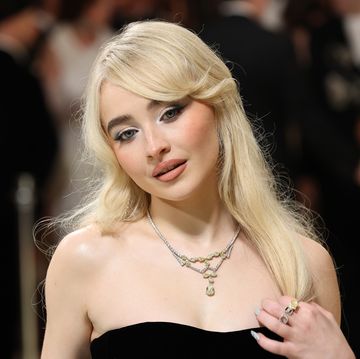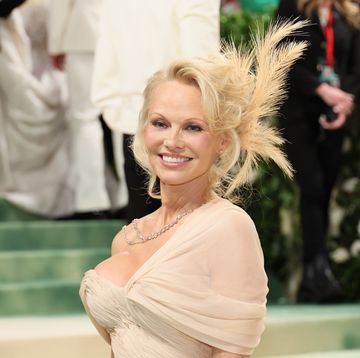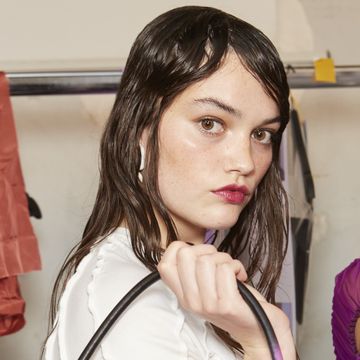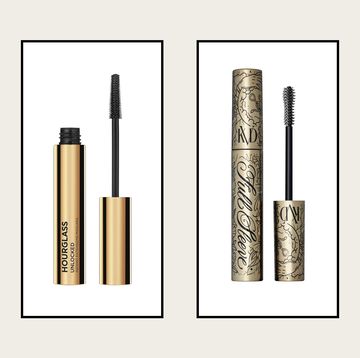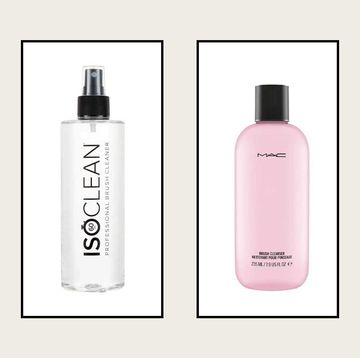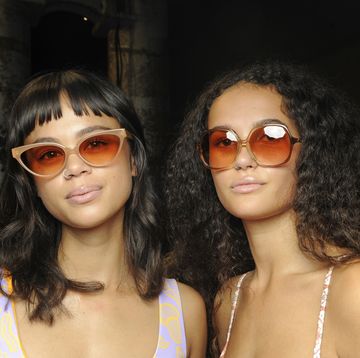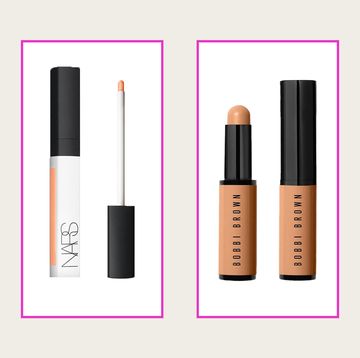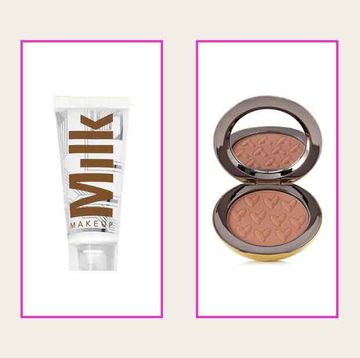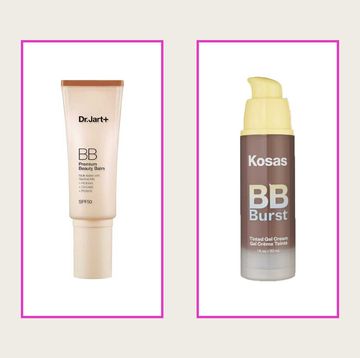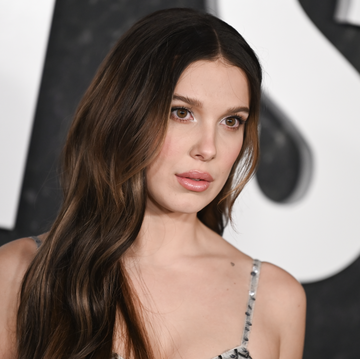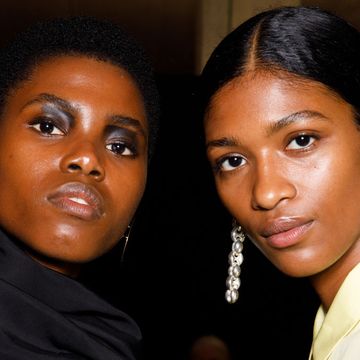One of the most important things I ever did was take my brother John to bareMinerals in Covent Garden.
It was 2012. John was 25 and in the middle of cancer treatment which would fail to save his life. Overnight, after the introduction of a new drug, his skin had broken out into violent spots. We met at Covent Garden station and, despite the heat of the August day, he was wearing a hat pulled low over his forehead and a scarf over his mouth and nose. The small strip of skin around his eyes looked painful. With characteristic brotherly generosity, he’d agreed to hang out with me, but I could see that he was more miserable than he had been at any point in the nine months since his diagnosis.
Thinking quickly, I suggested a walk to Seven Dials, and pretended we’d just happened upon the bareMinerals shop, saying, ‘Shall we go in here?’ in the lightest voice I could muster. In the cool of the air conditioning, I manoeuvred him toward the counter chair, and casually asked the assistant if there was anything she’d recommend for his skin. Before John knew it, he was having all sorts of products applied - he was being helped.
The reflex to feel shame is strong when our bodies rebel, and perhaps more so for men, who have long been stereotyped as being indifferent to their appearance. Indeed, John’s hospital only offered a workshop on make-up for women affected by cancer, as if men would not mind nor really notice the profound changes in appearance that illness can bring.
That day in the shop, I was moved by the assistant’s lack of fuss, and the way my brother relaxed and brightened beneath the lamp of her attention. Each gesture – as she gave him moisturiser and primer and dusted his face in powder foundation – seemed to say, 'It’s okay to care about this, there is nothing wrong with you.' John walked out of the shop with his scarf and hat stashed in his rucksack, a bag of make-up and his head held high in the sunshine. During his year of treatment, I often felt utterly powerless, but on this day, I had helped to fix something.
He died four months later. I took a Christmas card to bareMinerals and left it on the counter, dashing away into the night. I couldn’t speak the words out loud, but I wanted them to know what a vital thing they had done for us.
After John’s death, I didn’t want to wear make-up myself for at least a year. Make-up felt like a way of being public, putting on ‘a face to meet the world’, and I didn't want to meet the world. I was 24, and all I wanted was to walk around parks by myself very slowly, wearing my dead brother’s coat. Gradually beginning to wear make-up again, trusting myself not to cry my mascara off, felt like tentative steps back toward a bigger version of my life.
And then one day I met up with my other brother Max - a contortionist and cabaret performer whose everyday look is bold, with colourful eyes and a little sparkle all offset by their dark beard – and we went shopping. Our first stop was Charles Fox, the theatrical supplier where the make-up smells like crayons and wont melt under hot lights. Our second was Illamasqua, where each high pigment cream and shadow seems to invite yet another alter ego. I came home that day with a pale pink liquid lipstick, the colour of no human mouth. Painting my lips that uncanny pink felt like an admission, or perhaps a declaration, that my life would hold many things – colour, joy, spontaneity – and not just unspeakable sadness.
Eight years have passed since John’s death. As a way of getting through the pandemic, Max and I meet three times a week to workout on Zoom. Max appears onscreen in heels and Pepto-Bismol pink eyeshadow, or with a beautifully blended sunset across their lids. When I ask why Max still wears make-up in lockdown, they reply simply, ‘It’s a definite act.' In my memory of Max at their bravest, reading from Anna Karenina at our brother John’s funeral, there is colour and just a hint of glitter on their eyelids.
I’ve never been someone to wear make-up every day, and I have an ambivalent relationship with ideas of ‘beauty’. And yet, I feel defensive of make-up and the tiny acts of courage it inspires which are too easily written off as vanity. When I see myself in the mirror, made up for a Zoom meeting after weeks in my pandemic uniform (leggings and an ancient blue cardigan and no make-up), I think there you are. I feel returned to myself, with my eyes lined and lashes painted. And, just for an instant, I feel returned also to a pre-pandemic world.
When we are robbed of control – through sickness, grief, or a global crisis – there is defiance in choosing to add colour and shimmer to our faces, or choosing, as John did that day in bareMinerals, to simply look a little more like ourselves in better times.
'Here Comes The Miracle' by Anna Beecher is published by W&N and available to purchase in hardback and on eBook from February 18.
Like this article? Sign up to our newsletter to get more articles like this delivered straight to your inbox.
In need of more inspiration, thoughtful journalism and at-home beauty tips? Subscribe to ELLE's print magazine today! SUBSCRIBE HERE




